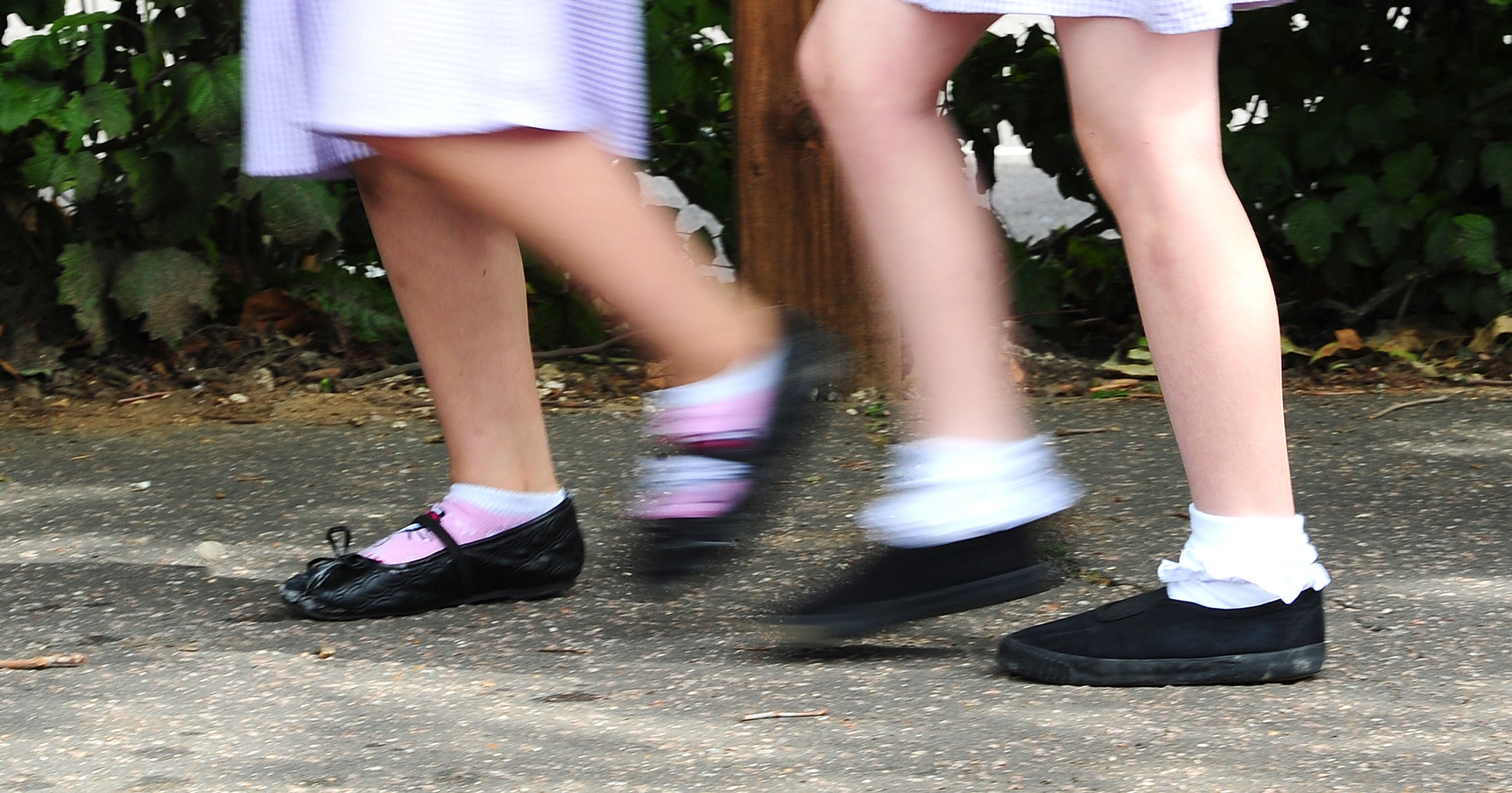Educational disadvantage gap virtually unchanged in 20 years, says report
The pandemic has significantly worsened overall outcomes as well as widening inequalities, the Institute for Fiscal Studies said.

The gap between disadvantaged children and their peers has seen “virtually no change” in two decades and the coronavirus pandemic has “significantly worsened overall outcomes”, a damning report has found.
Sixteen year-olds who are eligible for free school meals remain far less likely to earn good GCSEs than less disadvantaged peers and make slower progress through secondary school, the Institute for Fiscal Studies (IFS) said.
Failure is “baked in” from an early age, research economist and report author Imran Tahir said.
The Nuffield Foundation, which funded the research into education inequalities, said the report shows the “lifelong impact that the disadvantage gap can have on people’s life chances”.
Josh Hillman, director of education at the Nuffield Foundation, said it is“crucial that any reform of the system considers all phases of education and that it addresses the socio-economic factors that lead to disadvantage”.
The report stated: “Despite decades of policy attention, there has been virtually no change in the ‘disadvantage gap’ in GCSE attainment over the past 20 years.”
It found that while GCSE attainment has been increasing over time, 16-year-olds eligible for free school meals are still around 27 percentage points less likely to earn good GCSEs than less disadvantaged peers.
It also found that in the 2019 GCSE cohort, just 40% of disadvantagedchildren who achieved the expected level at age 11 went on to earn good GCSEs in English and maths, compared with 60% of their non-disadvantaged peers.
While the vast majority (95%) of non-disadvantaged pupils who achieved above the expected level aged 11 went on to earn good GCSEs, one in six primary school high achievers from disadvantaged backgrounds missed out on the GCSE benchmark.
The report said the pandemic had “significantly worsened overall outcomes as well as widening inequalities”, with the proportion of pupils leaving primary school meeting literacy and numeracy benchmarks falling from 65% in 2018–19 to 59% in 2021–22.
Children from more disadvantaged backgrounds may have fallen twice as far behind as the average child, in part due to worse experiences with learning from home in lockdown, the report added.
The gap early on carries through when it comes to wages, with people who have lower levels of qualifications also more exposed to slow earnings growth over their lives, the IFS said.
It said the annual salary for 45 to 50-year-olds who have qualifications at or below GCSE level is between £15,000 and £20,000 – which is the same as for 25 to 30-year-olds with those qualifications.
Mr Tahir said while it cannot be expected that the education system will overcome all the differences between children from different family backgrounds, “the English system could do a lot better”.
He described school funding as having become less progressive over time and said the resource gap between the state sector and independent schools is widening.
He said: “Among pupils who are behind expectations at the end of primary school, fewer than one in 10 goes on to earn good GCSEs in English and maths – meaning that we bake in failure from an early age.
“And the fall-out from the Covid-19 pandemic has moved us in the wrong direction, lowering attainment and widening inequalities.
“If the government is to meet its mission to have 90% of pupils attaining the expected level at the end of primary school, it needs to prioritise the education system and especially the disadvantaged pupils within it.”
The stark reality is that the disadvantage gap will never close at the current rate of progress
Professor Sandra McNally, director of the Centre for Vocational Education Research at the LSE and a co-author of the report, said: “The options for young people who do not earn good GCSEs at age 16 are limited, confusing and often not very lucrative.
“Pathways to higher levels of learning are opaque for such learners. The post-compulsory system in general can lead towards narrow choices with little opportunity for second chances later on.
“Big cuts to adult education budgets over the past two decades have squeezed the sector even further.”
Geoff Barton, general secretary of the Association of School and College Leaders, said the research “reflects the fact that we remain a deeply-divided, class-ridden society with a depressingly close alignment between family income and educational attainment, such that it is in fact a vicious circle which contributes to generational disadvantage”.
He called for investment in early years education, better support for schools facing the biggest challenges, better funding for schools and post-16 education and a “rethink” of qualifications and curriculum so that they work well for all learners.
He said: “The stark reality is that the disadvantage gap will never close at the current rate of progress.”
A spokeswoman for the Department for Education insisted that, since 2011, the Government had “narrowed the attainment gap between disadvantaged pupils and their peers at every stage of education up to the pandemic, and recent figures show that a record proportion of the most disadvantaged students are progressing to higher education”.
She also said almost £5 billion had been invested “to help young people to recover from the impact of the pandemic” as part of Government efforts to “level up opportunities for all”.